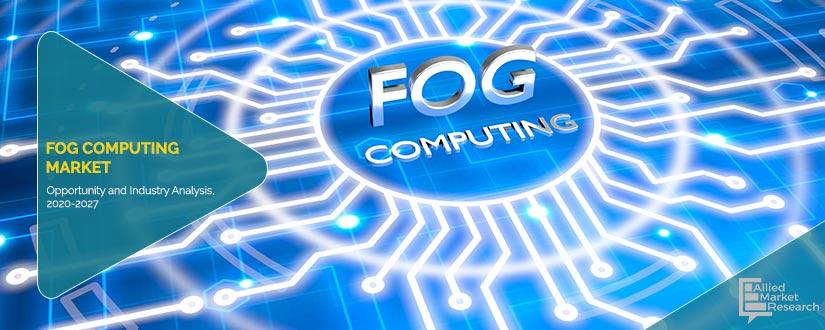Fog Computing Market Statistics
Fog computing refers to extended cloud where data is closer to the things that produce and act on IoT data. It is basically a layer of a distributed network environment and is integrated with cloud computing and internet of things (IoT) technologies. The development of fog computing frameworks gives organizations more choices for processing data, wherever it is most appropriate to do. Fog computing reduces the amount of bandwidth needed for data transfer on the extended cloud computing technologies . It can also be used in scenarios where there is no bandwidth connection to send data, hence the data generated must be processed close to access later. It also provides users security features in a fog network, from segmented network traffic to virtual firewalls.
COVID-19 scenario Analysis:
- After the outbreak of corona virus, almost every sector across the globe has moved toward digitization, automation, and people have started working from home, owing to which companies migrated their work load to cloud to ensure that businesses function as usual. Hence, the organizations is now expected to spend more on IT infrastructure for business applications and customer support services globally to work efficiently post covid-19 period.
- In the coming years, digitization, cloud computing, machine learning, and artificial intelligence are expected to dominate the technology space and investors are planning for long term investment plans in this sector.
Top impacting factors: Market Scenario Analysis, Trends, Drivers and Impact Analysis
Increase in adoption of smart devices to facilitate smart grids, smart cities, smart buildings, vehicle networks, and software-defined networks across the globe is expected to drive the growth of the fog computing market. Rise in IoT connectivity, machine to machine communication technology, and rise in demand for connected devices among end users are expected to boost the growth of the fog computing market. In addition, growth in awareness regarding the benefits of cloud software platforms among end users and governments taking initiatives to drive innovations and deployments in the fog computing market are expected to propel the market growth. However, security and privacy concerns remain as a hindrance for the fog computing market growth. Moreover, increase in R&D investments from governments to develop the cloud computing platform pose as an opportunity for the market growth.
Increase in usage of fog computing in connected cars technology
Rise in use of fog computing solutions to support the development of connected cars has been witnessed in past few years. Connected cars display a rich set of interactions and connectivity from cars to cars, cars to access points, and access points to access points. Fog computing allows various features that make it an ideal platform for delivering a wide range of smart connected vehicles (SCV), services in traffic support, safety, mobility & location awareness, heterogeneity, real-time interactions, and low latency.
Real-time processing in AI is advancement of virtual reality in which most of the information recovery and processing is forwarded to related devices, such as associated phones, smart home storage, and cloud. Fog architecture help these devices with intelligent location hierarchy to locate and analyze data.
Evolution of 5G technology
The evolution of 5G technology has led to the growth in edge computing data architecture with low latency issues and smooth bandwidth functioning. In addition, evolution of IoT to Internet of Everything (IoE) requires high-speed data analytics and shorter response time, which acts as another driver for the fog computing market. For instance, Fujitsu announced its collaboration with top tech giants such as Cisco Systems, Microsoft, Dell, ARM, Intel, and the Princeton University Edge Laboratory to form an association that aims to speed up the development of core technologies for fog computing. Thus, ability of fog computing in the 5G technology network to bring power of computing at the edge of the network is expected to propel the market growth during the forecast period.
Key benefits of the report:
- This study presents the analytical depiction of the global fog computing industry along with the current trends and future estimations to determine the imminent investment pockets.
- The report presents information related to key drivers, restraints, and opportunities along with detailed analysis of the market.
- The current market is quantitatively analyzed to highlight the market growth scenario.
- Porter’s five forces analysis illustrates the potency of buyers & suppliers in the market.
- The report provides a detailed global market analysis based on competitive intensity and how the competition will take shape in coming years.
Fog Computing Market Report Highlights
| Aspects | Details |
| By Component |
|
| By Application |
|
| By Region |
|
| Key Market Players | Dell Inc., Schneider Electric Software, LLC, Intel Corporation, GE Digital, ARM Holding Plc., Microsoft Corporation, Fujitsu, Toshiba Corporation, Nebbilo Technologies, Cisco Systems, Inc. |
Loading Table Of Content...




